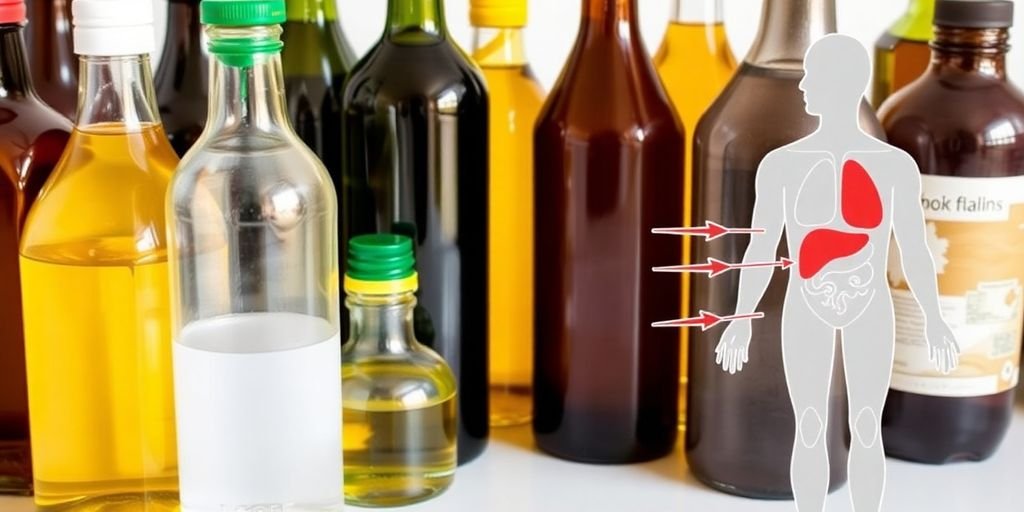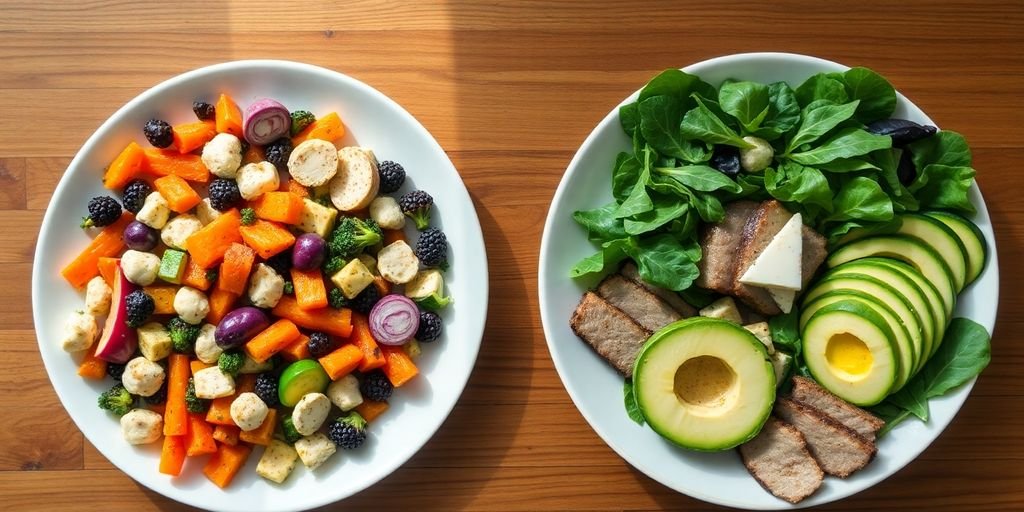This article talks about the hidden dangers of industrial seed oils and their impact on metabolic health. It covers the history of how these oils became common in our food supply, the manufacturing process that makes them harmful, and their connection to various health problems. The article also offers practical advice on how to reduce seed oil consumption and improve overall well-being.
The Shocking Truth About Seed Oils & Metabolic Health
Industrial seed oils are a big problem for our health. They are linked to things like obesity, heart disease, cancer, and diabetes. While correlation doesn’t always mean causation, there’s a strong suspicion that these oils are causing a lot of issues. Let’s look at what these oils are, how they became so common, and why they are bad for you.
What Are Seed Oils and How Are They Made?
Seed oils include things like soybean oil, canola oil (which used to be called rapeseed oil), sunflower oil, peanut oil, cottonseed oil, corn oil, rice bran oil, safflower oil, and vegetable oil. There are many more, but these are some of the main ones.
Making these oils is a complicated process:
- Heating the Seeds: They start by heating the seeds to a very high temperature.
- Chemical Extraction: Then, they use petroleum-based solvents to process the seeds. So, chemicals are added right away.
- Deodorizing: The extracted oil smells really bad, so they add another chemical to get rid of the smell. If you’ve ever smelled rancid oil, you know what this is like.
- Color Improvement: The oil also comes out cloudy and unappealing, so more chemicals are added to make it look edible.
A Brief History of Seed Oils
How did these oils end up in our food? It’s an interesting story:
- Late 1800s: Two guys named Proctor and Gamble realized they could use vegetable oil instead of pork fat in soaps. Vegetable oils were cheaper and easier to get.
- Oil Discovery: Around the same time, oil was found in Pennsylvania. This oil started being used for fuel, especially in lamps. Before this, cottonseed oil was used for lighting.
- Cottonseed Oil Surplus: With the new oil, cottonseed oil became a waste product. Companies didn’t know what to do with it.
- Crisco is Born: Proctor and Gamble figured out they could change cottonseed oil using a process called hydrogenation. This made it look like lard—a white, pasty, fatty substance. And that’s how Crisco was created. Soon after, many other vegetable oils followed.
How Seed Oils Became "Heart Healthy"
It’s strange how these industrial waste products became seen as good for you. A lot of it comes down to clever marketing and money.
- American Heart Association: In the 1940s, the American Heart Association was a new group with little money. Proctor and Gamble, along with other companies, donated a lot of money (about $1.5 million in 1940) to the American Heart Association. Naturally, the American Heart Association started to endorse their products.
- Ancel Keys and the Diet-Lipid Hypothesis: A man named Ancel Keys came up with the idea that animal fats, which people had eaten for a long time, were causing heart problems through cholesterol. He did a study that claimed vegetable oils were fine, but natural oils from meats were not. The American Heart Association promoted this idea for years.
- Debunked Studies: However, most of what Ancel Keys said about heart health and saturated fats has been proven wrong. Yet, some of these false ideas still stick around today and have shaped public opinion about health.
Seed Oils in Our Food
Seed oils are everywhere. They are in salad dressings, cooking oils, and most restaurant foods, especially fast food. Many restaurants reuse their oil, heating and cooling it multiple times. This process causes more damage to the oil, making it even more toxic. They might add chemicals to make it last longer and smell better, but it’s still bad for you.
It’s important to know what’s in your food. You need to learn the different names for sugars and industrial seed oils on nutrition labels, because they are often hidden.
The Health Impact of Seed Oils
Seed oils are a major source of omega-6 fatty acids. Our bodies need both omega-6 and omega-3 fatty acids, but the balance is important. Historically, the ratio was about 1:1. Now, it’s more like 10:1 or even 20:1 in favor of omega-6. This imbalance is a big problem because omega-6 seed oils are very pro-inflammatory, while omega-3s are anti-inflammatory.
This high omega-6 to omega-3 ratio causes inflammation, which is linked to many health issues:
- Autoimmune diseases
- Asthma
- Brain problems (like thinking and mental health issues)
- Diabetes
- Obesity
- Heart disease
- IBS
- Infertility
- Macular degeneration
- Osteoarthritis
Seed oils also contain additives that are endocrine disruptors. These chemicals can mess with your hormones. Many breast cancers, for example, are thought to be environmental, and these seed oils play a role. Plus, many seed oils come from genetically modified plants, and we don’t fully understand the long-term effects of these on our health.
Key Takeaways:
- Seed oils are highly processed and contain chemicals.
- They contribute to inflammation in the body.
- They are linked to many chronic diseases.
- They are found in almost all processed foods and many restaurant meals.
What You Can Cook With
Instead of seed oils, here are some better options for cooking:
- Ghee
- Butter
- Tallow
- Bacon grease
- Lard
- Avocado oil (good for high heat)
- Duck fat
- Olive oil (don’t heat at high temperatures, and make sure it’s 100% extra virgin)
Be careful with olive oil, as many brands are mixed with other vegetable oils. Look for 100% organic extra virgin olive oil and check the label carefully.
Simple Steps to Improve Your Health
It can feel overwhelming to change everything at once. Here are three easy things you can start with:
- Get Vegetable Oils Out of Your House: Replace them with healthier cooking fats like avocado oil, butter, or ghee. Even for baking, you can use better alternatives.
- Switch to Glass Storage: Change from plastic food containers to glass ones. Plastics can leach chemicals into your food, especially when heated. It’s an investment, but worth it.
- Choose Organic Feminine Products: If you or someone you know uses tampons or pads, switch to organic versions. Regular ones are often made with genetically modified cotton, and the chemicals can be absorbed through the skin.
Making small changes over time can lead to big improvements. Don’t try to do everything at once. Pick one thing, master it, and then move on to the next. Every step you take helps you on your journey to better health.



